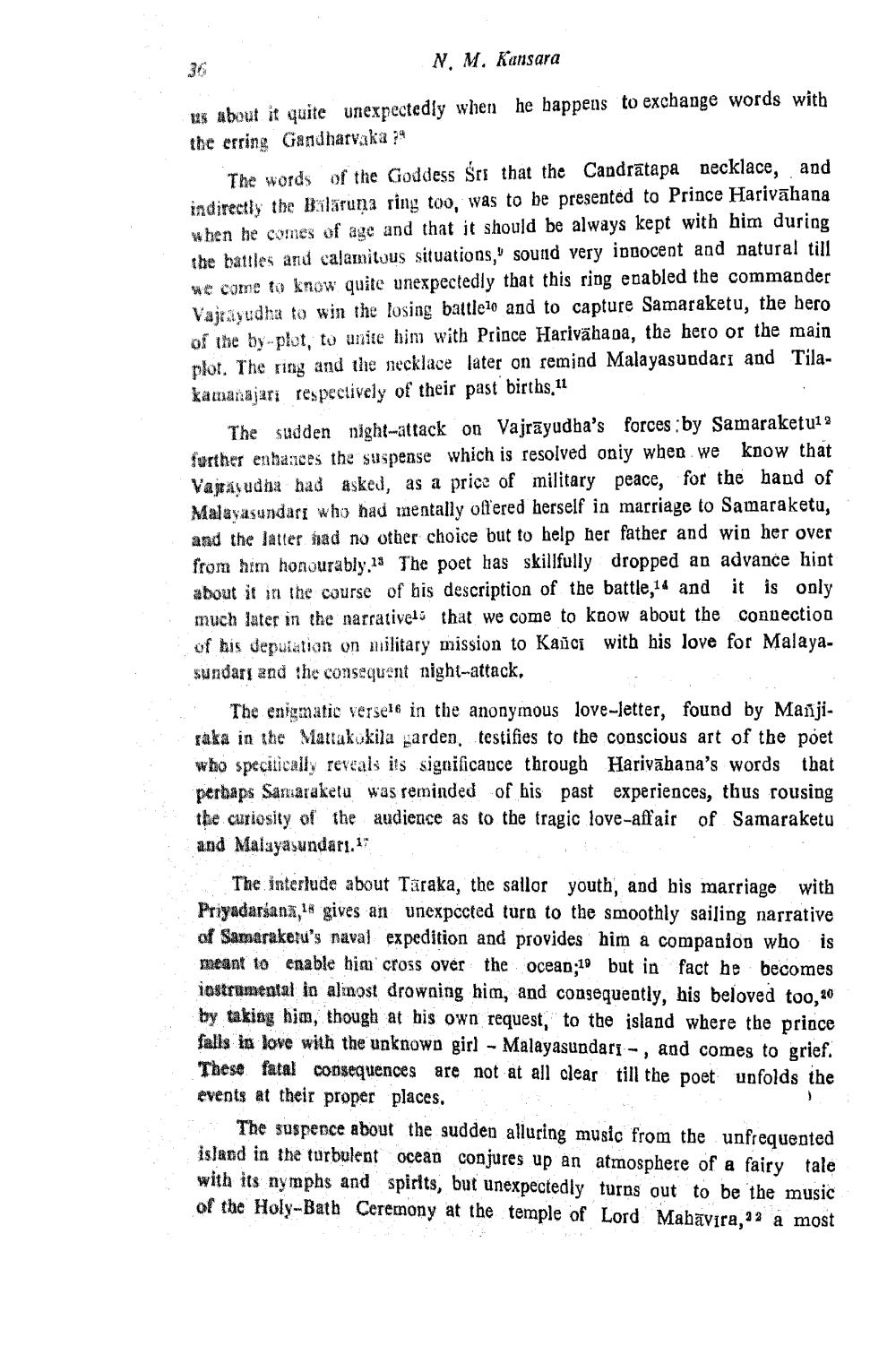________________
N. M. Kansara
us about it quite unexpectedly when he bappens to exchange words with the erring Gandharvaka ?
The words of the Goddess Sri that the Candrātapa necklace, and indirectly the Balaruna ring too, was to be presented to Prince Harivāhana when he comes of age and that it should be always kept with him during the battles and calamitous situations, sound very innocent and natural till we come to know quite unexpectedly that this ring enabled the commander Vajrayudha to win the losing battlelo and to capture Samaraketu, the hero of the by-plot, to unite him with Prince Harivähana, the hero or the main plot. The ring and the necklace later on remind Malayasundari and Tilakamanajari respectively of their past births, 11
The sudden night-attack on Vajrāyudha's forces: by Samaraketui 3 further enhances the suspense which is resolved oniy when we know that Vajta udha had asked, as a price of military peace, for the hand of Malavasundari who had mentally offered herself in marriage to Samaraketu, and the latter had no other choice but to help her father and win her over from him honourably,18 The poet has skillfully dropped an advance hint about it in the course of his description of the battle, 14 and it is only much later in the narratives that we come to koow about the connection of his deputation on military mission to Kanci with his love for Malaya.
sundars and the consequent night-attack. ...' The enigmatic verses in the anonymous love-letter, found by Manji
raka in the Manakokila warden, testifies to the conscious art of the poet who specitically reveals its significance through Harivāhana's words that perhaps Samsarakelu was reminded of his past experiences, thus rousing the curiosity of the audience as to the tragic love-affair of Samaraketu and Malaya sundari.1
The interlude about Taraka, the sallor youth, and bis marriage with Priyadarsanx, gives an unexpected turn to the smoothly sailing narrative of Samarakeru's naval expedition and provides him a companion who is meant to enable him cross over the ocean;19 but in fact he becomes instrumental in almost drowning him, and consequently, his beloved too,20 by taking him, though at his own request, to the island where the prince falls in love with the unknown girl - Malayasundari -, and comes to grief. These fatal consequences are not at all clear till the poet unfolds the events at their proper places.
The suspence about the sudden alluring music from the unfrequented island in the turbulent ocean conjures up an atmosphere of a fairy tale with its nymphs and spirits, but unexpectedly turns out to be the music of the Holy--Bath Ceremony at the temple of Lord Mahavira, 22 a most




